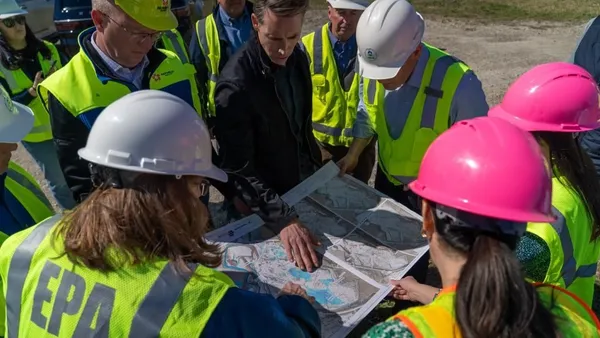Dive Brief:
- Kane County, IL officials are taking steps to finalize a plan that would turn the Settler's Hill Landfill, near Chicago, into a specially-designed course for cross-country races, as reported by the Chicago Daily Herald.
- The construction project, if approved by the full Kane County board, is estimated to cost $2.98 million and take about 18 months to complete. The expected cost comes in about $700,000 under the initial estimate, and would come out of the county's enterprise fund, rather than its annual budget.
- "We have worked very closely with the Chicago Area Track & Field Association to make sure this track will not only be able to run high school events but collegiate events as well," Ken Anderson, director of Kane County's Division of Environmental and Water Resources told the Daily Herald.
Dive Insight:
Since closing in 2006 after 24 years of operation, the landfill has been a source of gas collection for Waste Management of Illinois, Inc., but has not provided much, in terms of economic benefit, to the county — though it is a local hotspot for bird watching and sneaking a view of downtown Chicago.
If the plan goes through and a race track is built, a local volunteer group would handle operations and be responsible for attracting events to use the course, limiting liability for — and splitting income with — the county. Supporters of the project hope that attracting high school and local collegiate racing events will draw people into the community, where they would then shop or dine at local businesses. The track would largely be a draw for regional races because, unlike most cross-country courses, it would afford spectators a view of almost the entire race, rather than just the start and finish.
It's an unique approach, in terms of what to do with a closed landfill. Most common practices, from developing pedestrian parks, to bird-watching tours to installing solar panel farms, are passive. This approach, developing an attraction to bring in visitors, could create revenue for the county and demonstrate an effective alternative use for capped landfills, when conditions are right. More active approaches could be an enticing strategy for local governments to recoup the cost of otherwise-unusable municipal land.














